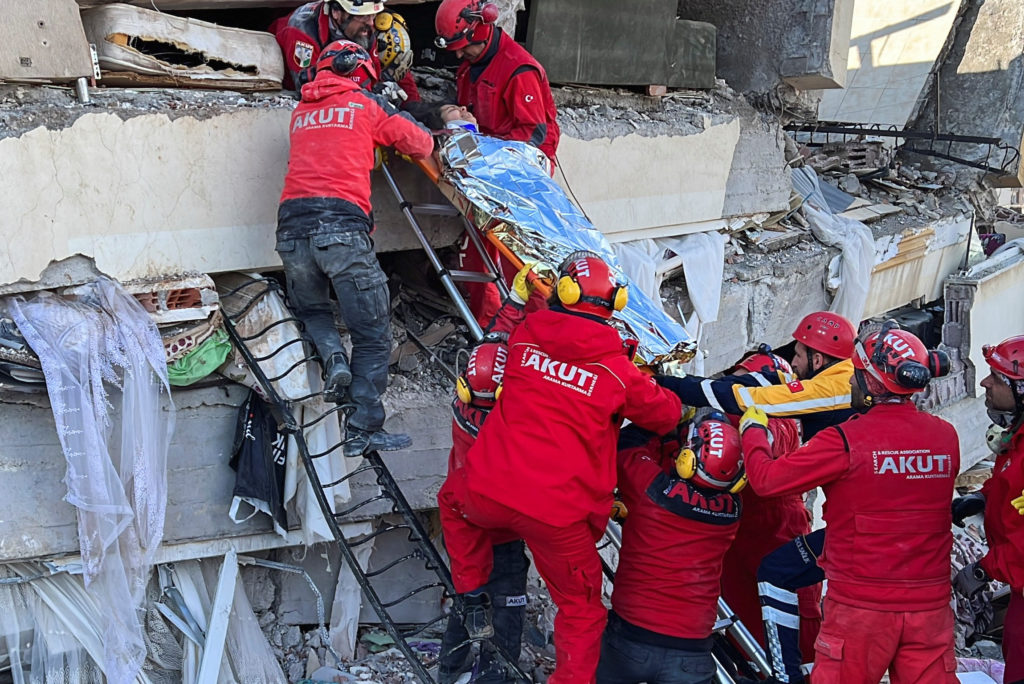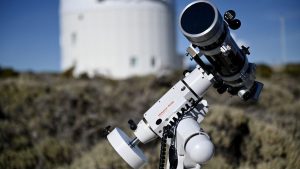A week after Turkey-Syria quake, rescuers are still pulling out survivors

KAHRAMANMARAS, Turkey Rescuers pulled more survivors from the rubble a week after an earthquake struck Turkey and Syria leaving more than 35,000 dead, as the United Nations warned the toll was set to rise far higher.
A young boy and a 62-year-old woman were the latest miracle rescues after being trapped for nearly seven days under the wreckage of collapsed buildings since Feb 6s devastating quake.
Seven-year-old Mustafa was rescued in south-east Turkeys Hatay province, while Madam Nafize Yilmaz was pulled free in Nurdagi, also in Hatay, reported the Anadolu state news agency early on Monday. Both had been trapped for 163 hours before their rescue late on Sunday.
CNN Turk, meanwhile, reported that 40-year-old Sibel Kaya was rescued in southern Gaziantep province, some 170 hours after the first of two major quakes struck the region.
Turkeys disaster agency said more than 32,000 people from Turkish organisations were working on search-and-rescue efforts, along with 8,294 international rescuers.
A member of a British search team posted a remarkable video on Twitter on Sunday showing a rescuer crawling down a tunnel created through the rubble to find a Turkish man who had been trapped for five days in Hatay.
Search teams are facing a race against the clock, as experts caution that hopes for finding people alive in the debris dim with each passing day.
In the devastated Turkish city of Kahramanmaras, near the epicentre of the quake, excavators dug through mountains of twisted rubble as a rescue team recovered a body from the wreckage.
But in many areas, rescue teams said they lacked sensors and advanced search equipment, leaving them reduced to carefully digging through the rubble with shovels or only their hands.
If we had this kind of equipment, we would have saved hundreds of lives, if not more, said Mr Alaa Moubarak, head of civil defence in Jableh, north-west Syria. Lack of aid in northern Syria
The UN has decried the failure to ship desperately needed aid to war-torn regions of Syria.
A convoy with supplies for north-west Syria arrived via Turkey, but the UNs relief chief Martin Griffiths said much more was needed for millions whose homes were destroyed.
He said the rescue phase was coming to a close, with urgency now switching to providing shelter, food, schooling and psychosocial care.
We have so far failed the people in north-west Syria. They rightly feel abandoned, looking for international help that hasnt arrived, Mr Griffiths said on Twitter.
Assessing damage in southern Turkey on Saturday, when the toll stood at 28,000, Mr Griffiths said he expected the figure to double or more, as chances of finding survivors fade with every passing day. More On This Topic Turkey earthquake: Teen pulled out alive over 80 hours later Two-year old rescued from rubble 79 hours after earthquake in Turkey Supplies have been slow to arrive in Syria, where years of conflict have ravaged the healthcare system, and parts of the country remain under the control of rebels battling the government of President Bashar al-Assad, which is under Western sanctions.
But a 10-truck UN convoy crossed into north-west Syria via the Bab al-Hawa border crossing, carrying shelter kits, plastic sheeting, rope, blankets, mattresses and carpets.
Bab al-Hawa is the only point for international aid to reach people in rebel-held areas of Syria after nearly 12 years of civil war, after other crossings were closed under pressure from China and Russia.
The head of the World Health Organisation (WHO) met Mr Assad in Damascus on Sunday and said the Syrian leader had voiced readiness for more border crossings to help bring aid into the rebel-held north-west.
He was open to considering additional cross-border access points for this emergency, WHO chief Tedros Adhanom Ghebreyesus told reporters. Conflict, Covid-19, cholera, quake Emergency personnel and local people work at the site of collapsed buildings following a powerful earthquake in Adiyaman, south-eastern Turkey, on Feb 12. PHOTO: EPA-EFE The compounding crises of conflict, Covid-19, cholera, economic decline and now the earthquake have taken an unbearable toll, Dr Tedros said a day after visiting Aleppo.
While Damascus has given the all-clear for cross-line aid convoys to go ahead from government areas, Dr Tedros said the WHO is still waiting for a green light from rebel-held areas before going in.
Mr Assad looked forward to further efficient cooperation with the UN agency to improve the shortage in supplies, equipment and medicines, his presidency said.
He also thanked the United Arab Emirates for providing huge relief and humanitarian aid, with pledges of tens of millions of dollars.
But in Turkey, security concerns prompted the suspension of some rescue operations, and dozens of people have been arrested for looting or trying to defraud victims in the aftermath of the quake, according to state media.
An Israeli emergency relief organisation said on Sunday that it suspended its earthquake rescue operation in Turkey and returned home because of a significant security threat to its staff. Anger grows
After days of grief and anguish, anger in Turkey has been growing over the poor quality of buildings, as well as the governments response to the countrys worst disaster in nearly a century.
A total of 12,141 buildings were officially either destroyed or seriously damaged in Turkey.
Three people were put behind bars by on Sunday and seven more have been detained, including two developers who were trying to relocate to the former Soviet republic of Georgia.
Officials and medics said 31,643 people had died in Turkey and 3,581 in Syria from last Mondays 7.8-magnitude tremor, bringing the confirmed total to 35,224. AFP More On This Topic Hope for more survivors fades as Turkey-Syria quake toll passes 20,000 UN admits aid failure for Syria as quake toll tops 33,000




